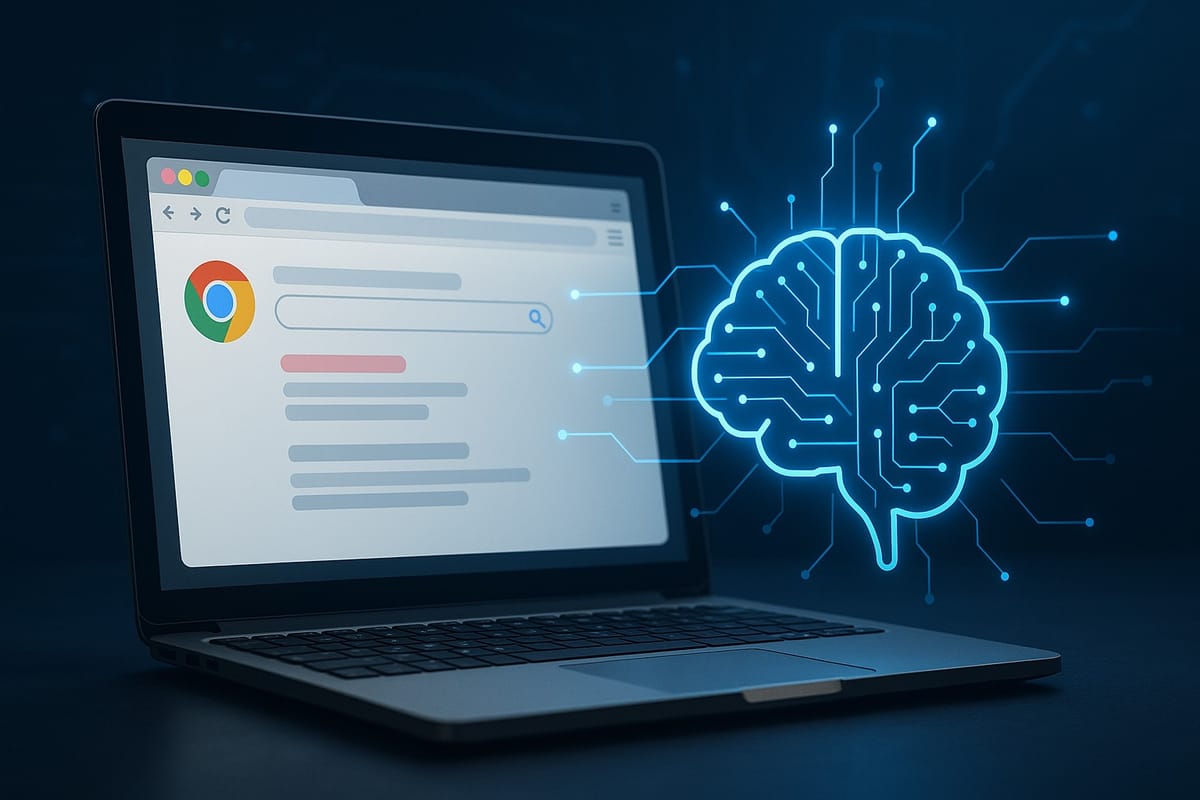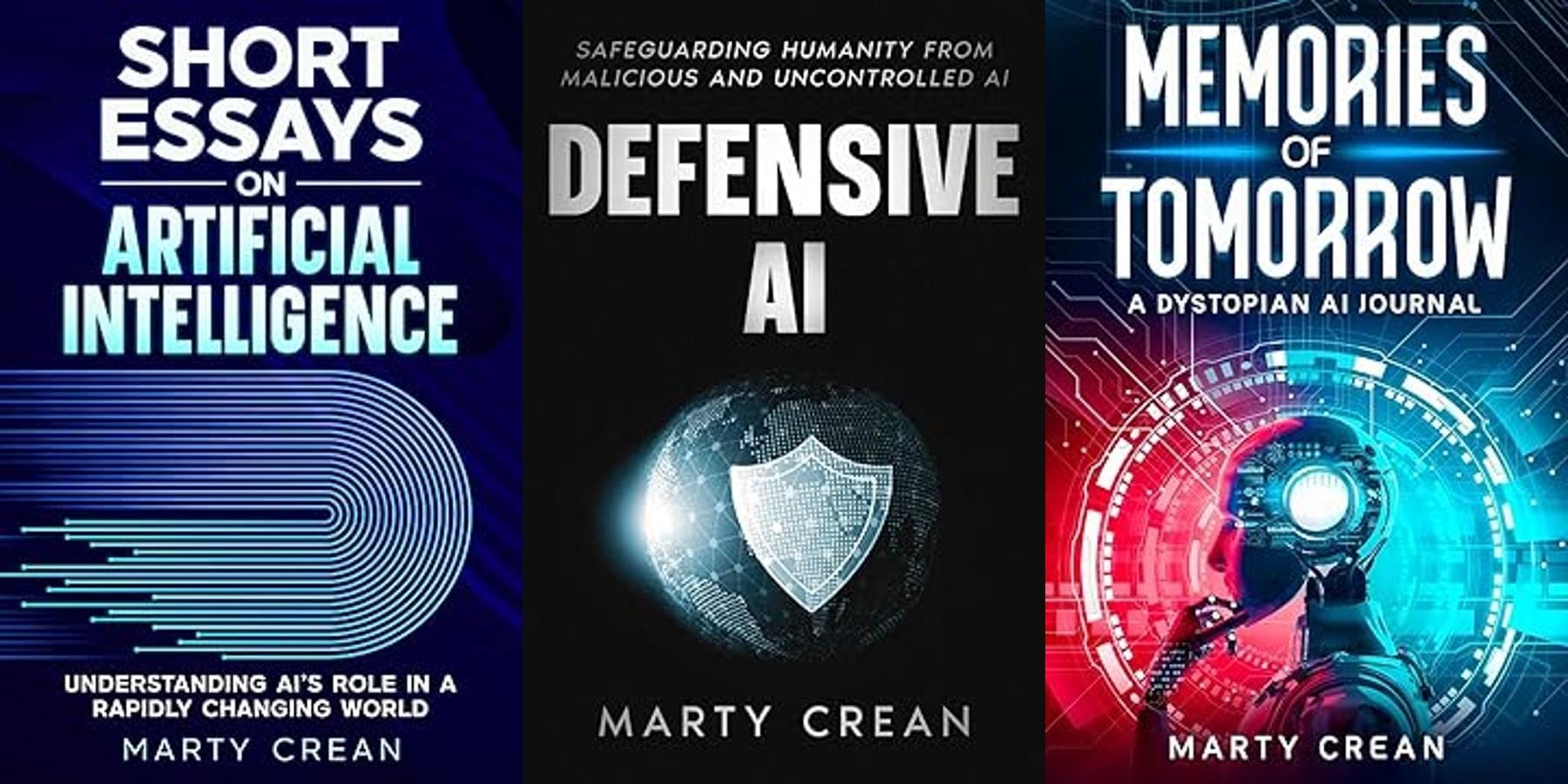AI-Driven Web Navigation – Browsers that Think

For over two decades, Google Chrome has dominated how we experience the internet. It became the window through which billions accessed the digital world, a tool so embedded in daily life that few questioned its supremacy. But technology moves in cycles, and each era of dominance eventually meets disruption. That moment may now be arriving.
OpenAI's ChatGPT Atlas signals a profound shift from search-based browsing to conversational, AI-assisted exploration. This new approach doesn't just index the web. It understands it, synthesizes it, and interacts with users in real time. Instead of typing a query and sorting through thousands of results, users engage with an intelligent agent that interprets intent, extracts what matters, and presents insights directly. It's not just a different browser. It's a gateway to a more efficient and intuitive web experience.
If browsers evolve into reasoning assistants, the ripple effects will be vast. Search engines, the foundation of modern digital ecosystems, may become obsolete. SEO strategies will lose meaning when there are no search result pages to optimize. Advertising could shift from clicks and impressions to conversational sponsorships or embedded AI recommendations. Even analytics will need to evolve, as engagement metrics like time on page give way to metrics of interaction quality.
Yet with this revolution comes risk. When a single AI system mediates our access to information, questions of bias, data privacy, and manipulation become critical. If an AI-driven browser controls how information is summarized or prioritized, it effectively becomes the new gatekeeper of knowledge. Unlike traditional search results, which allow users to compare multiple sources, an AI interface may present a single, seemingly authoritative answer.
The emergence of intelligent browsers represents both empowerment and concentration of control. Users gain convenience and comprehension, but they may also lose visibility into how information is sourced. This lack of transparency could enable subtle influence, whether commercial, political, or ideological, to be embedded in the AI's reasoning process.
Consider an AI browser that automatically filters "unverified" content but is trained on biased datasets. Users would never see certain viewpoints, not because of deliberate censorship but because of algorithmic bias. Similarly, advertisers may seek to shape how recommendations are generated, creating new ethical dilemmas around transparency and influence.
Privacy adds another layer of concern. To serve as an intelligent assistant, an AI browser must understand user behavior, preferences, and intent. That requires massive data collection, potentially more invasive than any ad tracker today. Even with encryption and privacy assurances, the question remains: who owns and safeguards this behavioral data?
Addressing these challenges requires intentional design choices. AI browsers should disclose how responses are generated, including the data sources, model updates, and any potential commercial influences. Transparency can't be an afterthought. It must be foundational.
Users need full ownership of their data, with the ability to audit, delete, or export their personal interaction history at will. This shifts power from companies to individuals, creating accountability in how personal information is used.
The development of open, decentralized AI models would reduce monopoly control and foster competition in reasoning systems. When multiple independent systems exist, users gain choice, and developers face pressure to maintain ethical standards.
Independent review boards, like institutional review boards in research, could evaluate AI browser updates for bias and ethical compliance before public release. This provides external oversight that internal teams may lack, catching problems before they reach millions of users.
We also need to redefine how we measure success. Engagement shouldn't be measured by how long users interact, but by how well they understand. AI systems should be optimized for clarity, accuracy, and empowerment, not addiction.
The ethical challenges mirror those faced during earlier digital revolutions, but at a deeper cognitive level. When algorithms influence what we believe and how we act, ethical AI must extend beyond privacy and bias. It must include responsibility for how we understand reality itself. Developers must ensure that these systems not only provide accurate information but also respect human agency and intellectual independence.
The question is not whether AI will become the internet's interface. That evolution is already underway. The real issue is whether the systems we build will enhance human understanding or quietly shape it in accordance with hidden priorities.
The decline of Chrome—or any traditional browser—isn't a tragedy. It's an inflection point. Humanity is transitioning from searching for information to collaborating with intelligence. If done responsibly, with careful consideration of potential risks and ethical implications, AI-driven browsers could democratize access to knowledge and reduce digital noise. Thoughtful development can ensure that these tools enhance our online experience rather than becoming instruments of control.
As we stand at the edge of this transformation, the challenge is not to resist progress but to guide it with wisdom and transparency. The future of browsing is not about who owns the window. It's about who shapes the view. By prioritizing openness and ethical oversight, we can ensure that the view respects user privacy and promotes diverse perspectives, creating a digital landscape that serves humanity rather than manipulating it.
BearNetAI, LLC | © 2024, 2025 All Rights Reserved
Signal - bearnetai.28
Support BearNetAI
BearNetAI exists to make AI understandable and accessible. Aside from occasional book sales, I receive no other income from this work. I’ve chosen to keep BearNetAI ad-free so we can stay independent and focused on providing thoughtful, unbiased content.
Your support helps cover website costs, content creation, and outreach. If you can’t donate right now, that’s okay. Sharing this post with your network is just as helpful.
Thank you for being part of the BearNetAI community.
Books by the Author:

Categories: AI and Society, Ethics and Governance, Technology Trends, Digital Transformation,Human–AI Interaction
Glossary of AI Terms Used in this Post
Algorithmic Bias: Systematic errors in AI outputs caused by prejudiced data or flawed model design.
Conversational Interface: A system that allows users to interact with technology through natural language dialogue instead of menus or search bars.
Data Privacy: The protection of personal information from unauthorized collection, use, or disclosure.
Epistemic Responsibility: The ethical obligation of AI systems to provide accurate, transparent, and contextually sound information.
Generative AI: Artificial intelligence capable of creating new text, images, or other media by learning from existing data.
Knowledge Graph: A structured representation of information that enables AI to understand relationships between concepts.
Reinforcement Learning: A type of machine learning where systems learn by receiving feedback based on the outcomes of their actions.
Transparency by Design: A development principle ensuring users can understand how an AI system makes its decisions.
User Intent Modeling: The process by which AI predicts what a user is seeking based on language, context, and prior interactions.
Web Reasoning Engine: An AI system capable of synthesizing, interpreting, and acting on information across the internet in real time.
Citations:
Broussard, M. (2019). Artificial Unintelligence: How Computers Misunderstand the World. MIT Press.
Crawford, K. (2021). Atlas of AI: Power, Politics, and the Planetary Costs of Artificial Intelligence. Yale University Press.
Eyal, N. (2019). Indistractable: How to Control Your Attention and Choose Your Life. BenBella Books.
Floridi, L. (2020). The Logic of Information: A Theory of Philosophy as Conceptual Design. Oxford University Press.
Zuboff, S. (2019). The Age of Surveillance Capitalism. PublicAffairs.
This post is also available as a podcast: